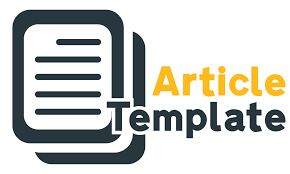UPAYA MENINGKATKAN PROBLEM SOLVING SKILLS MELALUI PENERAPAN MODUL MUTASI GENETIK BERBASIS CREATIVE PROBLEM SOLVING PADA SISWA IPA SMA
Sari
Teks Lengkap:
Download PDFReferensi
Aisyah, N., Nawawi, E., & Yusuf, M. (2020). Problem Solving Skill: What is the Difference between Practitioners and Experts? In Advances in Social Science, Education and Humanities Research (Vol. 513).
Akben, N. (2018). Effects of the Problem-Posing Approach on Students ’ Problem Solving Skills and Metacognitive Awareness in Science Education.
Amar, G. I., Suranto, S., & Sajidan, S. (2020). The Use of a Creative Problem Solving Based Genetic Mutation Module in Higher Education. International Journal of Higher Education, 10(3), 33. https://doi.org/10.5430/ijhe.v10n3p33
Ansari, B. I., Taufiq, T., & Saminan, S. (2020). The use of creative problem solving model to develop students’ adaptive reasoning ability: Inductive, deductive, and intuitive. International Journal on Teaching and Learning Mathematics, 3(1), 23–36. https://doi.org/10.18860/ijtlm.v3i1.9439
Carifio, J. (2015). Updating, Modernizing, and Testing Polya’s Theory of [Mathematical] Problem Solving in Terms of Current Cognitive, Affective, and Information Processing Theories of Learning Updating, Modernizing, and Testing Polya’s Theory of [Mathematical] Problem Solving in Terms of Current Cognitive, Affective, and Information Processing Theories of Learning, Emotions, and Complex Performances. 4(3), 2334–2978. https://doi.org/10.15640/jehd.v4n3a12
Cheng, S. C., She, H. C., & Huang, L. Y. (2018). The impact of problem-solving instruction on middle school students’ physical science learning: Interplays of knowledge, reasoning, and problem solving. Eurasia Journal of Mathematics, Science and Technology Education, 14(3), 731–743. https://doi.org/10.12973/ejmste/80902
Chua, B. L., Tan, O. S., & Liu, W. C. (2016). Journey into the problem-solving process: cognitive functions in a PBL environment. Innovations in Education and Teaching International, 53(2), 191–202. https://doi.org/10.1080/14703297.2014.961502
Dumitrescu, C., Olteanu, R. L., Gorghiu, L. M., & Gorghiu, G. (2014). Learning Chemistry in the Frame of Integrated Science Modules – Romanian Student’s Perception. Procedia - Social and Behavioral Sciences, 116, 2516–2520. https://doi.org/10.1016/j.sbspro.2014.01.603
Duyar, I., Mina, K. D., & Owoh, J. S. (2019). Promoting Student Creative Problem-Solving Skills (pp. 78–99). https://doi.org/10.4018/978-1-5225-7772-0.ch005
Fukuzawa, S., Boyd, C., & Cahn, J. (2017). Student Motivation in Response to Problem-based Learning. Collected Essays on Learning and Teaching, 10, 175–188. https://doi.org/10.22329/celt.v10i0.4748
Gardner, J., & Belland, B. R. (2017). Problem-Centered Supplemental Instruction in Biology: Influence on Content Recall, Content Understanding, and Problem Solving Ability. Journal of Science Education and Technology, 26(4), 383–393. https://doi.org/10.1007/s10956-017-9686-0
Güleç, S. (2020). Problem Solving Skills in Social Studies Education and Problem Solving Skills of Social Studies Teachers. Journal of Education and Training Studies, 8(3), 48. https://doi.org/10.11114/jets.v8i3.4686
Hajiyakhchali, A. (2013). The Effects of Creative Problem Solving Process Training on Academic Well-being of Shahid Chamran University Students. Procedia - Social and Behavioral Sciences, 84, 549–552. https://doi.org/10.1016/j.sbspro.2013.06.602
Herutomo, R. A., & Masrianingsih, M. (2019). Pembelajaran model creative problem-solving untuk mendukung higher-order thinking skills berdasarkan tingkat disposisi matematis. Jurnal Riset Pendidikan Matematika, 6(2), 188–199. https://doi.org/10.21831/jrpm.v6i2.26352
Hidayati, N., Idris, T., & Handayani, P. H. (2022). Student problem solving skills in PBL model: Viewed from the discourse sheet. Biosfer, 15(2), 231–241. https://doi.org/10.21009/biosferjpb.23840
Kadir, Z. A., Abdullah, N. H., Anthony, E., Salleh, B. M., & Kamarulzaman, R. (2016). Does Problem-Based Learning Improve Problem Solving Skills?—A Study among Business Undergraduates at Malaysian Premier Technical University. International Education Studies, 9(5), 166. https://doi.org/10.5539/ies.v9n5p166
Keleş, T. (2022). A Comparison of Creative Problem Solving Features of Gifted and Non-Gifted High School Students. Pegem Egitim ve Ogretim Dergisi, 12(2), 18–31. https://doi.org/10.47750/pegegog.12.02.03
Pamungkas, S. J., & Oktasari, W. (2018). Development of Plant Biosystematics E-Module Based on Problem Solving. In Indonesian Journal of Biology Education | (Vol. 3, Issue 2).
Putri, M. D. S., al Muhdhar, M. H. I., Mardiyanti, L., Suradi, S., Idayati, I., & Utami, S. (2023). Relationship Between Problem-Solving Skills and Environmental Literacy of Students. AIP Conference Proceedings, 2569. https://doi.org/10.1063/5.0112734
Sinapova, L. (2014). Creative Problem Solving. https://www.researchgate.net/publication/228753252
Sio, U. N., Kotovsky, K., & Cagan, J. (2022). Determinants of creative thinking: the effect of task characteristics in solving remote associate test problems. Thinking and Reasoning, 28(2), 163–192. https://doi.org/10.1080/13546783.2021.1959400
Supriatna, G. S. (2022). PENERAPAN ASESMEN KINERJA DALAM MENINGKATKAN KEMAMPUAN HABITS OF MIND SISWA PADA MATERI PLANTAE. Bioed : Jurnal Pendidikan Biologi, 10(2), 58. https://doi.org/10.25157/jpb.v10i2.8734
Syatri, Dina. F. T., Fatchurahman, & Karyanti, K. (2020). TEKNIK CREATIVE PROBLEM SOLVING (Ngalimun, Ed.). Penerbit K-Media. https://www.researchgate.net/publication/347131348
Untarti, R., & Ainun Najib, M. (2021). Game and creative problem solving in mathematics. Journal of Physics: Conference Series, 1778(1). https://doi.org/10.1088/1742-6596/1778/1/012043
Widya, Maielfi, D., & Alfiyandri. (2021). Need Analysis for Physics E-Module Based on Creative Problem Solving Integrated 21st Century Skills. Journal of Physics: Conference Series, 1940(1). https://doi.org/10.1088/1742-6596/1940/1/012110
Widya, W., Yusmanila, Y., Zaturrahmi, Z., & Ikhwan, K. (2022). Praktikalitas E-Module Berbasis Model Creative Problem Solving (CPS) untuk Materi Fluida Dinamis Terintegrasi Keterampilan Abad 21. EDUKATIF : JURNAL ILMU PENDIDIKAN, 4(4), 5700–5707. https://doi.org/10.31004/edukatif.v4i4.3313
Refbacks
- Saat ini tidak ada refbacks.








